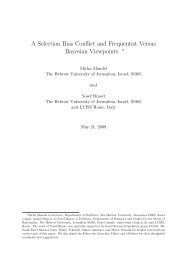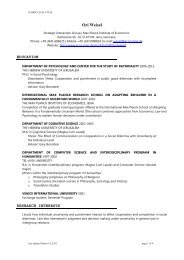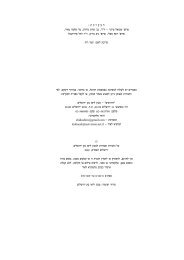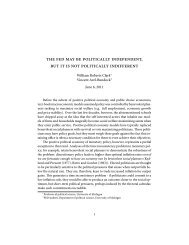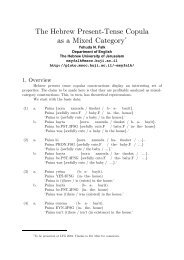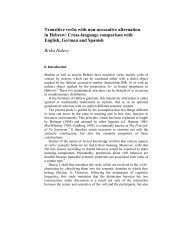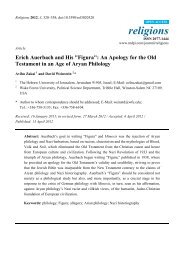PRO Theorem - Pluto Huji Ac Il
PRO Theorem - Pluto Huji Ac Il
PRO Theorem - Pluto Huji Ac Il
Create successful ePaper yourself
Turn your PDF publications into a flip-book with our unique Google optimized e-Paper software.
SYNTACTIC THEORY Y. N. Falk<br />
:<<br />
>ROY\OW¡ Z ¢<br />
The only ungoverned position that arguments can occupy is [SPEC, IP] (subject position) in nonfinite<br />
CPs without the prepositional complementizer for. Using italics for governors and<br />
boldface for barriers:<br />
VP<br />
V<br />
V CP<br />
C<br />
C IP<br />
DP I<br />
<strong>PRO</strong> I …<br />
I doesn’t govern <strong>PRO</strong> because nonfinite I isn’t a governor. C doesn’t govern <strong>PRO</strong> because it is<br />
empty. This is why for is ungrammatical in control sentences. Finally, while V is a governor, it<br />
can’t govern <strong>PRO</strong> because CP is a barrier and it intervenes between V and <strong>PRO</strong>. In CP-less<br />
constructions (ECM and Raising) the verb does govern the complement subject position, and<br />
<strong>PRO</strong> is ungrammatical.<br />
What about Case? If <strong>PRO</strong> is ungoverned, it is not Case-marked. We have already seen another<br />
non-Case-marked element: the trace of NP-movement. What both of these have in common is<br />
that they are empty categories. So we can restate the Case Filter as:<br />
All overt DPs must have a Case.<br />
to



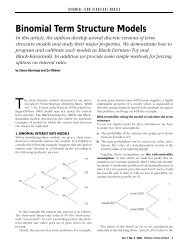
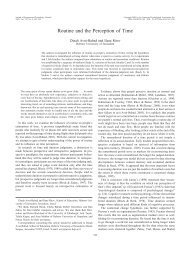
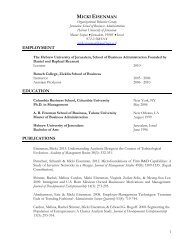
![CV [PDF] - Pluto Huji Ac Il](https://img.yumpu.com/18174585/1/190x245/cv-pdf-pluto-huji-ac-il.jpg?quality=85)
